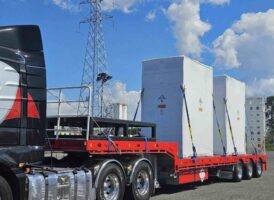The co-founder of Australia’s Tritium, a global leader in the electric vehicle fast-charging market, warns that energy utilities could be caught out if they fail to adapt to the possibilities of vehicle-to-grid charging technology.
Either way, says James Kennedy, the chief technology officer of the Brisbane-based Tritium, the electricity grid will never be the same:
Either the grid will have a massive new distributed storage resource, or consumers will have a giant battery on wheels that would enable them to take their home off grid, powered by rooftop solar stored and backed up by batteries.
Most major electric car manufacturers have baulked at so-called vehicle-to-grid technologies, worried that it may affect the durability of the batteries used in the EVs.
But this starting to change, led by manufacturers in Japan, where the issue of back-up has been a major focus since the Fukushima nuclear disaster, and the new Nissan Leaf – to be delivered in Australia this year – will be the first mainstream model with such facilities.
“As soon as the market goes bi-directional, it opens up a host of possibilities,” says Kennedy. (You can hear the full interview on The Driven podcast here).
Tritium has so far concentrated on fast-charging infrastructure, but is also eyeing the home charging market if bi-directional charging becomes the norm.
Read the full story on RenewEconomy’s electric vehicle-dedicated site, The Driven…










